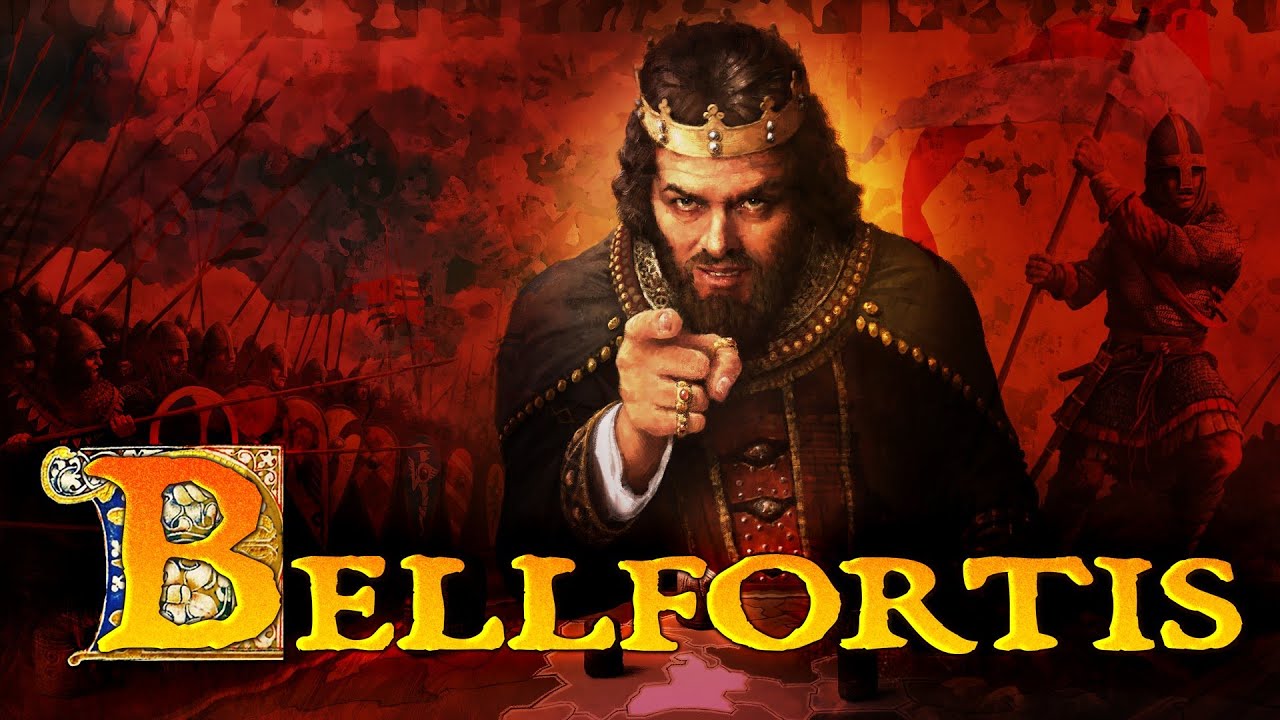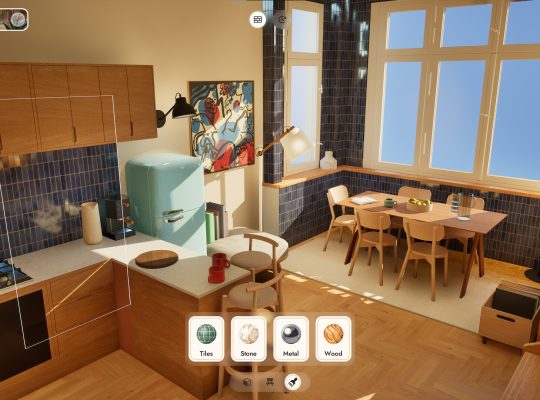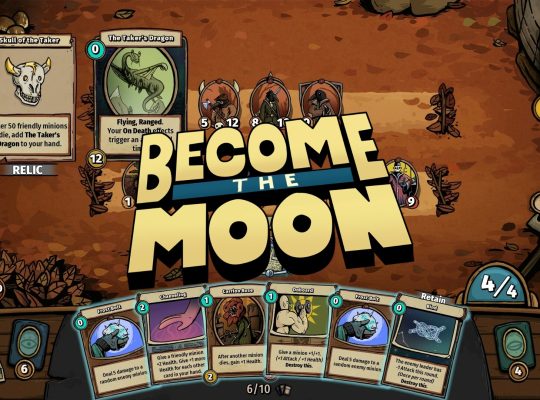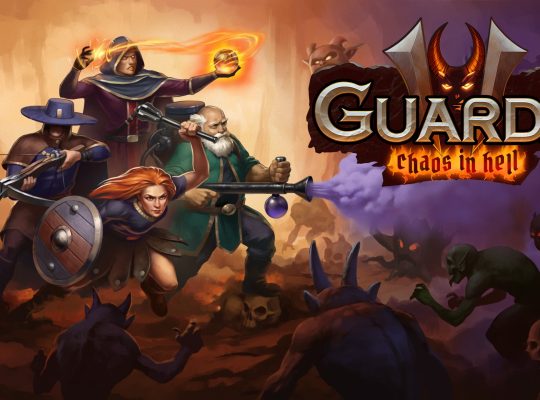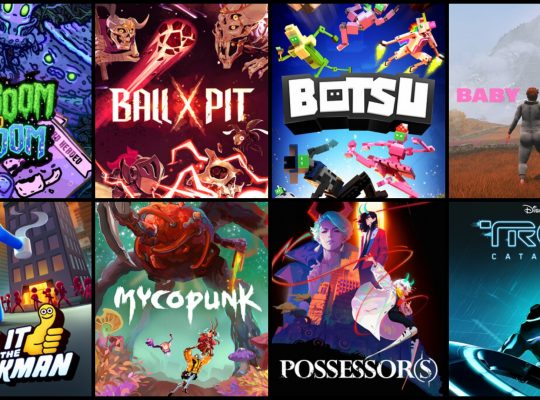- DEVELOPER: Rake in Grass
- PUBLISHER: Rake in Grass
- PLATFORMS: PC
- GENRE: Grand Strategy
- RELEASE DATE: January 29, 2025
- STARTING PRICE: 19,50€
- REVIEWED VERSION: PC
As a Paradox Interactive fan, I’ve seen the ups and downs, but my passion for grand strategy games remains strong. While I love titles like Crusader Kings and Old World, indie games rarely dive into this genre. That’s why I tried Bellfortis, a unique turn-based strategy game. Developed by Rake in Grass, known for Jets’n’Guns Gold, it’s unexpected to see them explore this style, but Belfortis is definitely a game worth keeping an eye on.
It’s a strategy game set in the early Middle Ages, combining turn-based strategic planning with real-time battles, and draws inspiration from classics like Total War: Medieval II, Crusader Kings III, and Defender of the Crown, but aims for a more streamlined, intense experience tailored for players with limited time. You play as a medieval ruler expanding your kingdom through diplomacy, conquest, or cunning politics in a turbulent era of emerging European powers and savage raids.

Diverse Campaigns and Gameplay
Even in Early Access, Bellfortis offers large-scale campaigns or smaller, focused maps. The current build includes five campaigns in Central Europe, Iberia and the British Isles, each lasting few hours, with multiple factions being playable per campaign. Gameplay involves managing provinces, raising armies, forming alliances, and fighting arcade-style battles while handling random events like plagues or raids. You can choose any nation and start fresh, each offering unique starting positions, from powerful to still growing.
Before starting your campaign, you choose a mentor who grants bonuses like extra gold or technology points, and select a campaign goal. The campaign map feels like Total War but with a simpler, Risk-style 2D design rather than a vibrant 3D world. You manage five key resources, which can be tricky at first, but once you get the hang of it, Bellfortis becomes a lot of fun.
Each turn in Bellfortis represents a month, where you use resources to build infrastructure like barracks for recruiting units or markets to increase income, or to expand your territory. Province management is simpler than in Crusader Kings III or even Total War titles, focusing on several key building menus that unlock military or economic perks. Buildings are interconnected but designed to be straightforward, so you’ll easily know what to build first.
Diplomacy aspect is rather barebones currently, mostly letting you send diplomats to boost relations, gain allies, or peacefully annex kingdoms, while spies collect intel or sabotage foes. More diplomacy options become available based on good or bad relationships and through technologies. Random events like crop failures or barbarian raids keep you on your toes, adding variety without being too complex. However, in Early Access, the province management UI feels clunky, with menus that make accessing key info tedious. Events are also repetitive and can get annoying after some time.
The 2D, Risk-style campaign map resembles Total War but lacks 3D vibrancy.

Kingdom Growth and Replayability
Battles in Bellfortis are fast, real-time, arcade-style fights, unlike Total War’s slower pace. You lead infantry, cavalry, and archers on 2D battlefields, controlling unit formations and tactics directly. Combat lasts 5-10 minutes, focusing on quick decisions rather than micromanagement. Flanking with cavalry or holding a line with spearmen can shift the outcome. An auto-resolve option will also suits strategy-focused players. While accessible, battles lack Total War’s visual or tactical depth, and the current build’s limited unit types reduce strategic variety.
As your kingdom grows, you unlock new buildings, units, and diplomacy options through technology. Over time, you gain advanced units, more gold for upgrading lands, and a clear overview of your provinces. Each province has unique terrain with specific bonuses or penalties, and you can assign governors to boost them. Replayability comes from diverse factions, random events, and varied campaign maps. However, the single-player focus and lack of multiplayer (planned for later) reduce its social appeal compared to Total War’s online battles.
Bellfortis doesn’t offer deep complexity, but unique quest objectives, optional or assigned, add a nice touch, rewarding you with plenty of resources. This simplicity isn’t a downside; the game avoids long, 10-hour campaigns, keeping things concise. As the devs noted, it’s perfect for players with limited time. Early Access also only means the content is going to expand over time.
Public order and tax rates matter a lot in Bellfortis. High taxes can spark rebellions, so you need to keep things balanced. I found it frustrating how little gold you start with, beginning a campaign with -300 gold is tough and stabilizing the economy takes time. Overspending can hurt, so Bellfortis pushes you to plan carefully. You can’t just spam units or buildings; you need to think about what you’re building and why.
“Short, concise campaigns suit players with limited time.”

Promising Indie Strategy Experience
In the end, Bellfortis is a promising indie grand strategy game that simplifies the depth of Total War and Crusader Kings III into a more accessible, engaging experience. It combines turn-based kingdom management with real-time arcade battles, offering meaningful choices and replayable campaigns. However, as an Early Access title, it has limited content, rough visuals, and a clunky UI, with basic AI and diplomacy needing improvement.
It makes me to think that this technicially isn’t a “grand” game but rather a completley different genre in need of a name. It doesn’t have that grand style to it but it’s also good enough to satisfy any fans of the genre that just really want to enjoy a simple game. It’s good enough and it’s easy to reccommend.
“Not a traditional ‘grand’ strategy game, Bellfortis feels like a new, unnamed genre.”
| Pros | Cons |
|---|---|
| Simplified grand strategy game. | Early Access limitations. |
| It can be replayed multiple times. | Repetitive battles. |
| Unique quest system. | Diplomacy lacks substance. |
| Ideal for players who don't have much time. | It may be too simple for some. |
Review copy provided by the publisher
3.8


